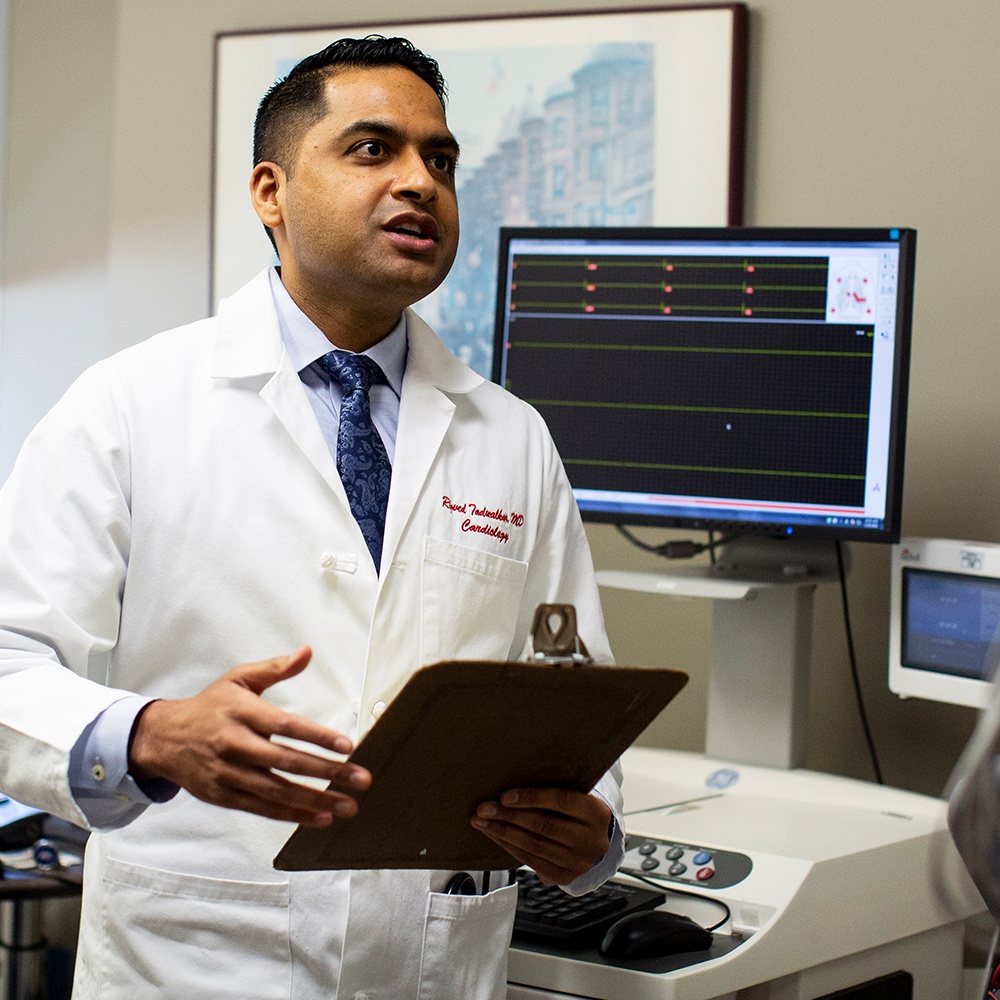Ventricular Premature Complex Ventricular Tachycardia Ablation

Overview
What is Ventricular Premature Complex Ventricular Tachycardia Ablation?
Ventricular premature complexes are mostly benign conditions that can cause irregular heartbeat. Most people who experience ventricular premature complex never notice any symptoms. However, if you have symptoms you might experience your heart fluttering, pounding or jumping in your chest. If your symptoms become more forceful, this may reduce your heart’s ability to pump blood efficiently. This may be more serious and include weakness, dizziness or loss of consciousness. You may also experience ventricular tachycardia that could cause you to have a life threatening cardiac arrest. Your doctor may recommend a ventricular tachycardia ablation to create tiny scars in your heart to block abnormal electrical signals in order to restore normal heartbeat.
Why
Why a Ventricular Premature Complex Ventricular Tachycardia Ablation?
Your cardiologist may recommend an ablation procedure if prescribed medications and lifestyle changes isn’t successful. For some patients, ablation cures the abnormal heart rhythms; while an ablation procedure may improve treatment with an implantable cardioverter defibrillator.
Risks
Ventricular Premature Complex Ventricular Tachycardia Ablation Risks and Complications
Ventricular tachycardia ablation has a history of safety and success. As will all surgical procedures, there are some potential risks, including:
- Bleeding or infection as the catheter insertion site.
- Reaction to the dye injected during the procedure.
- Blood vessel damage.
- Blood clots in your legs or lungs.
- Heart valve damage.
- Stroke or heart attack.
Your cardiologist will discuss the benefits and risk of the procedure so you can make an informed decision.

Prep
Preparing for Ventricular Premature Complex Ventricular Tachycardia Ablation
Your doctor will give you instructions on how to prepare for the test that may include:
What to Expect
What to Expect During a Ventricular Premature Complex Ventricular Tachycardia Ablation
During the Procedure
You will be mildly sedated during an ablation procedure. Your cardiologist inserts a catheter into your heart, generally through a blood vessel in your groin. You may also have dye injected through the catheter so you blood vessels can be seen more clearly on X-ray images. Sensors on the tip of the catheter record your heart’s electricity, which your cardiologist uses to identify the area causing your arrhythmia and where to apply the ablation. To create small scars in your heart to block abnormal arrhythmias, your cardiologist may use radiofrequency energy (heat) or extreme cold (cryoablation).
An ablation procedure takes between 3 to 6 hours to complete, after which you’ll go into recovery. Depending on your condition, you may go home the same day or stay overnight at the hospital. You’ll probably feel sore after the procedure, but that shouldn’t last more than a week. You should avoid any heavy lifting for at least a week. You should see improvements in the quality of your life after the procedure, however, there’s always a chance your arrhythmias may return and another procedure may be recommended or some other form of treatment.
After the Procedure
Depending on your condition, you may go home the same day or stay overnight at the hospital. You’ll probably feel sore after the procedure, but that shouldn’t last more than a week. You should avoid any heavy lifting for at least a week. You should see improvements in the quality of your life after the procedure, however, there’s always a chance your arrhythmias may return and another procedure may be recommended or some other form of treatment.
Specialists